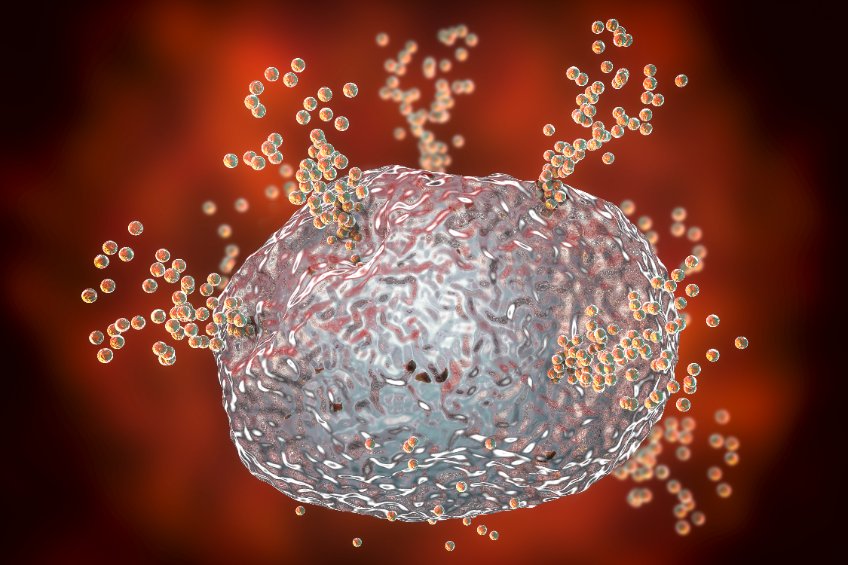Cancer cells are very good at evading the body’s immune system, which is the main reason cancer is so hard to fight, but recently a UC San Francisco research team developed a new treatment that could help people with KRAS mutationCancer cells are marked with markers to allow the immune system to better identify them, which can become a powerful tool in helping cancer immunotherapy.
Put a flag on KRAS mutant cancer cells
The immune system can distinguish foreign cells from different proteins on the cell surface, but it cannot distinguish for cancer cells, mainly because from the outside, cancer cells have few unique proteins to identify, most of which can distinguish them from healthy cells. they are all found inside cells and the immune system cannot go deep enough to detect them.
Among these are KRAS mutations that drive the growth of cancer cells. Although KRAS mutations are present in about a quarter of cancers and are considered one of the most common genetic mutations in cancer, they have been considered non-pharmacological for many years because they were found within tumors.
After nearly ten years of continuous detailed analysis of KRAS proteins, the situation has gradually changed: for example, the targeted drug Sotorasib (AMG510) for KRAS G12C has entered clinical trials, but Sotorasib is currently only used for lung cancer. non-small cell (NSCLC), cannot help all cancer patients with KRAS mutations and also has drug resistance issues. To that end, the research team set out to explore whether there was another way to target KRAS.
In the new “Cancer Cell” study, the research team demonstrated a similar and equally targeted drug to Sotorasib KRAS G12C The mutated drug ARS1620, when bound to mutated KRAS, not only blocks KRAS to affect tumor growth, but also causes cells to treat the bound ARS1620-KRAS complex as a foreign molecule, allowing cells to process the protein and move it into surface, while This is tantamount to putting an “eat me” mark on cancer cells, making it easier for immune cells to be detected.
Next, the research team went deeper into the multi-billion dollar human antibody library and looked at antibodies that could recognize this “eat me” sign. Research on isolated proteins and human cells showed that the most promising antibodies discovered by the team could be combined with ARS1620 drugs and the ARS1620-KRAS complex bind tightly.
Also effective against cancer cells that have developed drug resistance
The research team then designed an immunotherapy around the antibody, inducing T cells to recognize the hallmark of the KRAS mutation and targeting it for destruction. The results showed that the new therapy could kill not only cancer cells with KRAS mutations and treated with ARS1620, but also those that had become resistant to ARS1620.
More research on animals and humans needs to be conducted before clinical trials are launched. But the researchers are optimistic about the future, believing that the new therapy could not only help in the treatment of tumors with KRAS mutations, but also pave the way for other similarly targeted drugs to pair with immunotherapies.
Study lead author Charles Craik, Ph.D., professor of medicinal chemistry, said the discovery of a new strategy to harness the immune system in combination with KRAS-targeted drugs is exciting, and the team expects that. it will lead to greater and longer lasting immune responses in cancer patients. “This is a platform technology and we want to look for other targets that could also move the molecules to the cell surface and make them suitable for immunotherapy.”
References:
1. Cancer cell, 2022,https://www.cell.com/cancer-cell/fulltext/S1535-6108(22)00318-X
2. https://www.ucsf.edu/news/2022/09/423661/drug-turns-cancer-gene-eat-me-flag-immune-system
© www.geneonline.news All rights reserved Geneonline is protected by copyright and cannot be reproduced without permission. For collaboration, contact: [email protected]
–


